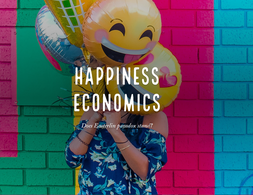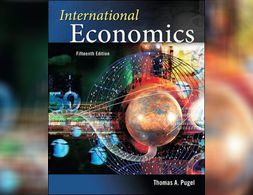✕
976 results
Modern authors have identified a variety of striking economic patterns, most importantly those involving the distribution of incomes and profit rates. In recent times, the econophysics literature has demonstrated that bottom incomes follow an exponential distribution, top incomes follow a Pareto, profit rates display a tent-shaped distribution. This paper is concerned with the theory underlying various explanations of these phenomena. Traditional econophysics relies on energy-conserving “particle collision” models in which simulation is often used to derive a stationary distribution. Those in the Jaynesian tradition rely on entropy maximization, subject to certain constraints, to infer the final distribution. This paper argues that economic phenomena should be derived as results of explicit economic processes. For instance, the entry and exit process motivated by supply decisions of firms underlies the drift-diffusion form of wage, interest and profit rates arbitrage. These processes give rise to stationary distributions that turn out to be also entropy maximizing. In arbitrage approach, entropy maximization is a result. In the Jaynesian approaches, entropy maximization is the means.
Happiness economics is a branch in behavioral economics, where it explores the economics factors and consequences of happy humans. What makes people happier, and what benefits do we get when people are happier? This dossier introduces you to the field of happiness economics, from a review of economic factors proposed to influence people’s happiness, to a discussion of the economic consequences of happiness, and concludes with economic policy implications of happiness economics.
Geographical economics starts from the observation that economic activity is clearly not randomly distributed across space. This revised and updated introduction to geographical economics uses the modern tools of economic theory to explain the who, why and where of the location of economic activity. The text provides an integrated, first-principles introduction to geographical economics for advanced undergraduate students and first-year graduate students, and has been thoroughly revised and updated to reflect important developments in the field, including new chapters on alternative core models and policy implications.
Exploring Economics Dossier on the economic fallout of the COVID-19 pandemic and the structural crisis of globalization. COVID-19 encounters a structural crisis of globalization and the economic system that drives it, with an uncertain outcome. We asked economists worldwide to share with us their analysis of current events, long-term perspectives and political responses. The dossier will be continuously expanded.
Introduction Economics is by necessity a multi paradigmatic science Several theoretical structures exist side by side and each theory can never be more than a partial theory Rothschild 1999 Likening scientific work to the self coordinating invisible hand of the market Michael Polanyi cautioned strongly against centralized attempts to steer …
The objective of the course is to explore the main strengths and weaknesses of orthodox and heterodox paradigms within development economics.
A central question in development economics literature is, “Why do countries stay poor?” The key disagreements are whether the lack of economic growth stems from institutions or from geography (Nunn 2009). From an institutional perspective, hostile tariff regimes and commodity price dependencies form a barrier to a sectoral shift that would otherwise lead to economic development in developing countries (Blink and Dorton 2011) (Stiglitz 2006).[i]
Readers of economic and political theory as well as students of economic planning will appreciate this classic, now available for the first time in English. Written eighty years ago, when Sorel became disillusioned with the official socialism of the German and French Marxist parties, this new translation presents Sorel's analysis of the rise and fall of the two great modern ideologies: socialism and liberal capitalism.
A review of:
[1] Intermediate Microeconomics, H.R. Varian
[2] Mikrooekonomie, R.S. Pindyck, D.L. Rubinfeld
[3] Grundzuege der mikrooekonomischen Theorie, J. Schumann, U. Meyer, W. Stroebele
Stratification economics is defined as a systemic and empirically grounded approach to addressing intergroup inequality. Stratification economics integrates economics, sociology and social psychology to distinctively analyze inequality across groups that are socially differentiated, be it by race, ethnicity, gender, caste, sexuality, religion or any other social differentiation.
The core idea of ecological economics is that human economic activity is bound by absolute limits. Interactions between the economy, society and the environment are analysed, while always keeping in mind the goal of a transition towards sustainability.
This course teaches basic concepts relevant in political economy. Topics include the contractual nature of the state, public versus private goods, property rights and economic externalities, the logic of collective action and social choice theory. It also refers to the fundamentals of political philosophy, bringing two ideas of liberty into the picture. The relevance and limitations of the economic approach to the study of law and politics are then discussed.
This course introduces students to the relevance of gender relations in economics as a discipline and in economic processes and outcomes.
How long the COVID-19 crisis will last, and what its immediate economic costs will be, is anyone's guess. But even if the pandemic's economic impact is contained, it may have already set the stage for a debt meltdown long in the making, starting in many of the Asian emerging and developing economies on the front lines of the outbreak.
Racism and discrimination have choked economic opportunity for African Americans at nearly every turn. In From Here to Equality, William Darity Jr. and A. Kirsten Mullen confront these injustices head-on and make the most comprehensive case to date for economic reparations for U.S. descendants of slavery.
Commons stand for a plurality of practices ‘beyond market and state’ as the famous Commons scholar – and first female noble prize winner of economics - Elinor Ostrom put it. Their practice and theory challenge classical economic theory and stand for a different mode of caring, producing and governing. Within this workshop we want to dive into theory, practice and utopia of Commons following four blocks...
In this ambitious and impressive new book, journalist Howard French seeks to excavate the long elided central importance of the African continent as the “linchpin of the machine of modernity.” In the story of modernity, he writes, the role of Africa is diminished, trivialized, and erased, and by filling in some gaps in this story, he retells the story of modernity.
In analyzing the global competition between Chinese and Indian tea, Andrew B. Liu challenges past economic histories premised on the technical “divergence” between the West and the Rest, arguing instead that seemingly traditional technologies and practices were central to modern capital accumulation across Asia.
One method of economic modelling that has become increasingly popular in academia, government and the private sector is Agent Based Models, or ABM. These simulate the actions and interactions of thousands or even millions of people to try to understand the economy – for this reason ABM was once described to me as being “like Sim City without the graphics”. One advantage of ABM is that it is flexible, since you can choose how many agents there are (an agent just means some kind of 'economic decision maker' like a firm, consumer, worker or government); how they behave (do they use complicated or simple rules to make decisions?); as well as the environment they act in, then just run the simulation and see what happens as they interact over time.
Anwar Shaikh explores alternative economic explanations, emphasizing 'real competition' theory and the role of imperfections in economic patterns.
International Economics, 15e continues to combine rigorous economic analysis with attention to the issues of economic policy that are alive and important today in this field.
Anwar Shaikh seeks in his lectures for alternative explanations for empirically observed macro and microeconomic patterns of economic fluctuations, price volatility, and economic development.
This guide contains a collection of recommended YouTube channels and YouTube videos in the fields of economics, business and economic policy.
Economics for Emancipation (E4E) is a seven-module introductory curriculum with interactive and participatory workshops. It offers a deep critical dive into the current political economic system, exploration of alternative economic systems, and dynamic tools to dream and build the economy that centers care, relationship, and liberation.
This lecture briefly discusses historic understandings of the limits to infinite economic growth on a finite planet (from John Stuart Mill to Marx). Taking a ecological economics perspective it discusses the metabolism of the economy, the economy as a subsystem of the environment, biophysical limits to growth, and sustainable economic scales.
As the current economic crisis spreads around the globe questions are being asked about what king of capitalist or post-capitalist economy will follow. There is increasing talk of the need for stringent economic regulation, the need to temper greed and individualism, to make the economy work for human and social development.
Economic theory is currently at a crossroads, where many leading mainstream economists are calling for a more realistic and practical orientation for economic science. Indeed, many are suggesting that economics should be reconstructed on evolutionary lines.
This book is about the application to economics of evolutionary ideas from biology.
This book is about the application to economics of evolutionary ideas from biology.
Firms are the primary places where economic activity takes place in modern capitalist economies: they are where most stuff is produced; where many of us spend 40 hours a week; and where big decisions are made about how to allocate resources. Establishing how they work is hugely important because it helps us to understand patterns of production and consumption, including how firms will react to changes in economic conditions and policy. And a well-established literature – led by post-Keynesians and institutionalists – holds that the best way to determine how firms work is to…wait for it...ask firms how they work. This a clearly sensible proposition that is contested in economics for some reason, but we’ll ignore the controversy here and just explore the theory that springs from this approach.
Microeconomics in Context lays out the principles of microeconomics in a manner that is thorough, up to date, and relevant to students. Like its counterpart, Macroeconomics in Context, the book is uniquely attuned to economic realities. The "in Context" books offer affordability, accessible presentation, and engaging coverage of current policy issues from economic inequality and global climate change to taxes.
Thirty-years of economic transformation has turned China into one of the major players in the global capitalist economy. However, its economic growth has generated rising problems in inequality, alienation, and sustainability with the agrarian crises of the 1990s giving rise to real social outcry to the extent that they became the object of central government policy reformulations.
Debunking Economics - Revised and Expanded Edition exposes what many non-economists may have suspected and a minority of economists have long known: that economic theory is not only unpalatable, but also plain wrong. When the original Debunking Economics was published back in 2001, the market economy seemed invincible, and conventional "neoclassical" economic theory basked in the limelight.
Economic development is a process of continuous technological innovation and structural transformation. Development thinking is inherently tied to the quest for sustainable growth strategies. This book provides a neoclassical approach for studying the determinants of economic structure and its transformation and draws new insights for development policy.
We use cookies on our website. Click on Accept to help us to make Exploring Economics constantly better!






























